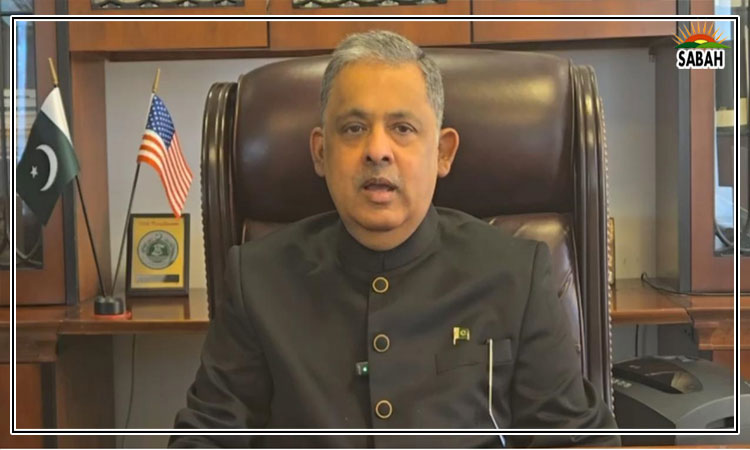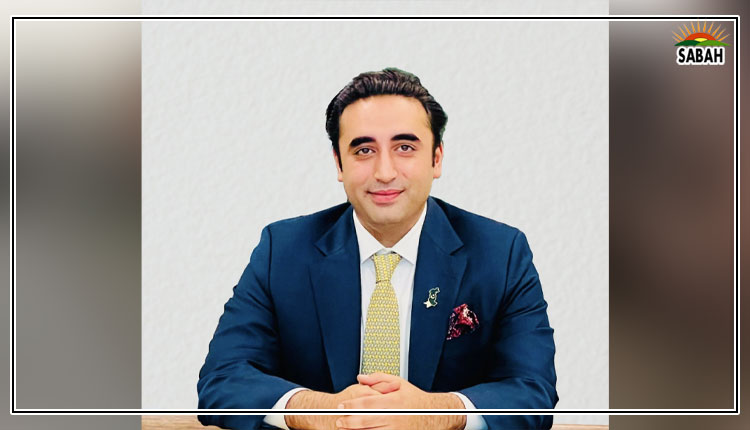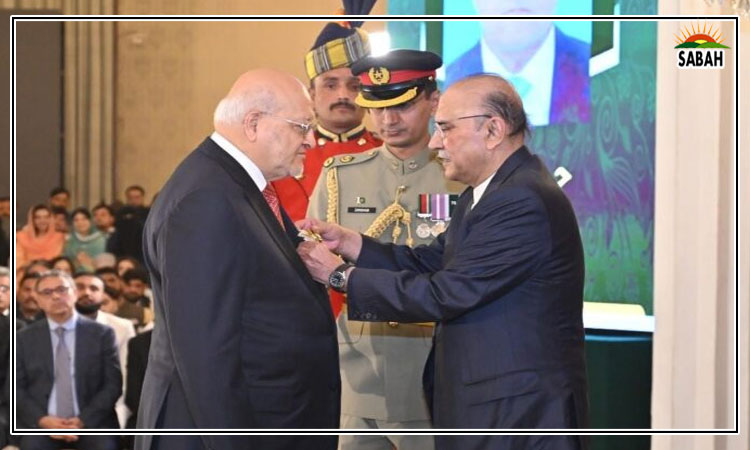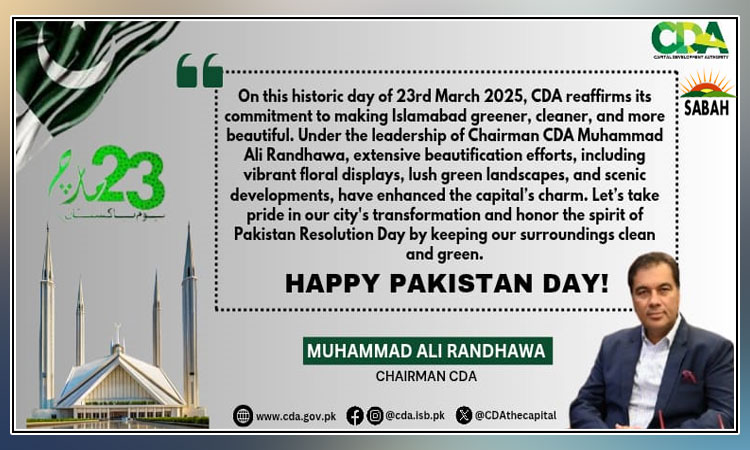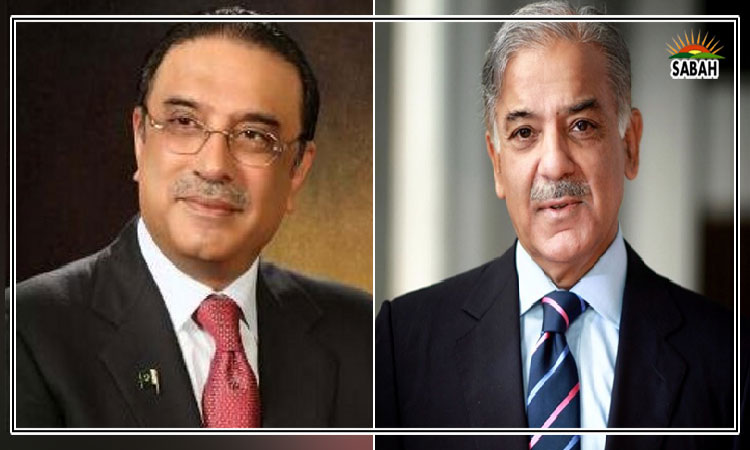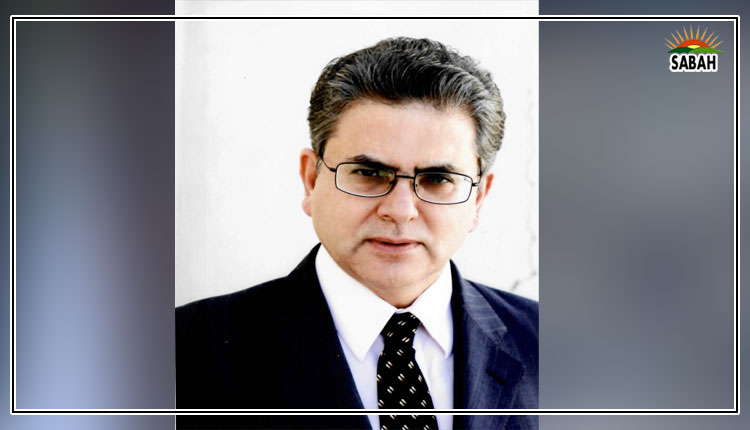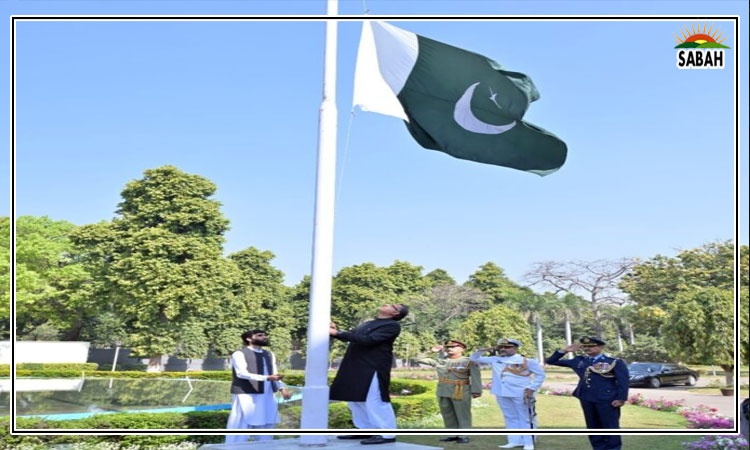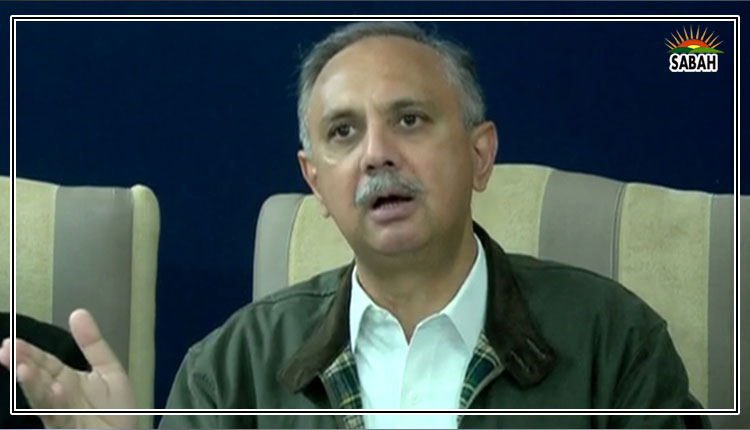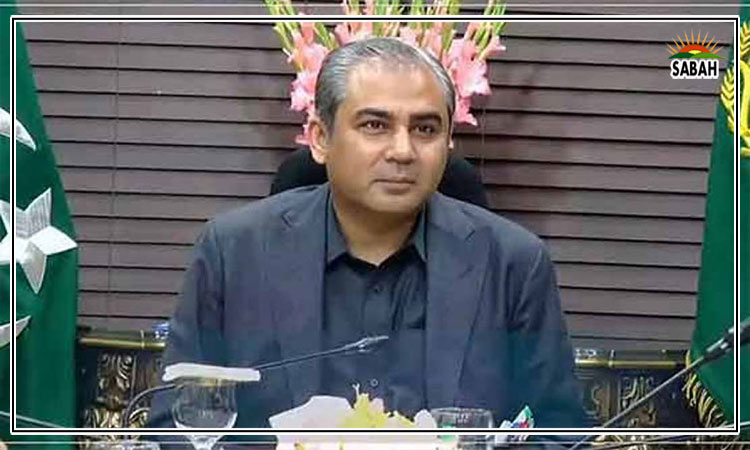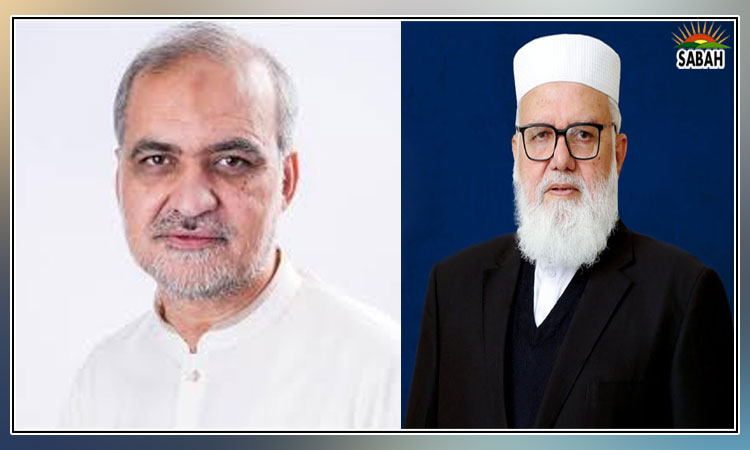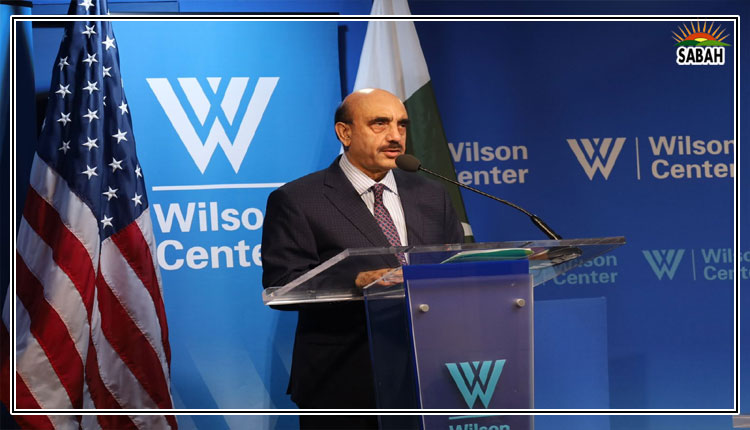People-centric ties & positive perceptions key to bright Pak-US relations: Masood Khan
WASHINGTON, D.C., June 28 (SABAH): “Pakistan and United States should continue to invest in the reset of their relationship, maintain strong security links, enhance intelligence cooperation, resume sales of advanced military platforms and sustainment of Pakistan’ US-origin defense equipment,” said Pakistan’s Ambassador to the United States Masood Khan.
“This is crucial for regional security and opposing the rising tide of terrorism that also threatens the interests of the US and its allies,” he continued.
Ambassador Masood Khan made these remarks while addressing Annual Pakistan conference titled, “Looking Back, Looking Forward: Assessing the US-Pakistan Relationship”, organized by the Wilson Center’s South Asia Institute in partnership with the International Academy of Letters USA.
Addressing a jam-packed hall comprising policy makers, scholars, intelligentsia, corporate leaders, members of think-tank community and Pak-American community leaders, the Ambassador observed that the prospects of Pakistan-United States relations were bright. “We share values, our security and economic interests are interwoven, and it is the aspiration of our two peoples that strengthen our ties,” said the Ambassador.
Noting that the two countries had leveraged their bilateral relationship for their respective strategic interests, Masood Khan said that they were developing a practical roadmap that enabled them deepen their understanding and deliver security and prosperity for all.
“In this era of renewed strategic competition, the US and Pakistan would build on existing partnerships and explore new horizons for establishing the parameters of mutuality of interests,” said Masood Khan.
“We should not base our engagement on incongruity of expectations. Our ties should be anchored in ground realties, even as we aim for stronger security and economic partnerships. Secondly, one or two issues should not hold the entire relationship hostage,” said the Ambassador.
Highlighting Pakistan’s demographic dividend, technological advancements, and huge market opportunities, Ambassador Khan invited US investors and businesses to tap the country’s potential.
Projecting security, economic and strategic component as the new domains of cooperation between the two countries, Masood Khan observed that security cooperation had its importance. “It equals trust building,” he observed. The Ambassador highlighted high level defence talks, frequent meetings, military exercises including Inspired Union-2024, Falcon Talon and Red Flag that promoted defence cooperation between the two countries.
On fighting scourge of terrorism, the Ambassador apprised that audience that Pakistan has launched Azm-i-Istehkam or Resolute Stability – to oppose and dismantle terrorist networks. “For that, we need sophisticated small arms and communication equipment,” he said.
Outlining numerous areas of successful collaboration between Pakistan and the US, including energy, agriculture, climate change, healthcare, education, science, and technology, Ambassador Masood Khan expressed gratitude for US assistance and ongoing partnerships while welcoming the launch of new initiatives in these fields.
He invited the attention of the participants towards huge investment opportunities in IT, energy, agriculture and minerals sectors. “The SIFC-prioritized projects have opened up new opportunities to American technologies in agriculture, ICT and mining projects,” said the Ambassador. Ambassador Masood Khan also acknowledged the invaluable contributions of the Pakistani American community, terming them a shared asset for both nations.
On the Pak-China relationship, Masood Khan said that Pakistan’s posture “is neither one of strategic autonomy nor of strategic neutrality; but one that may be called a strategic dyad model, which has been chosen by major countries in Global South.”
“The US and China both are important to Pakistan, in their own right, none at the expense of the other, because we believe these are not conflicting goals,” he reiterated. “Pakistan was a strategic bridge between the US and China in the early 1970s. Now we can be an economic conduit. The China-Pakistan Economic Corridor (CPEC) can connect the Belt and Road Initiative (BRI) and the US-led Partnership for Global Infrastructure and Investment (PGII),” said the Ambassador.
Masood Khan also cautioned that Indo-Pacific Strategy (IPS) should not become a vehicle to accentuate regional imbalances. On India, the Ambassador said Pakistan has always been keen on dialogue with India to resolve outstanding problems, such as the Kashmir dispute. “Elections in two countries should offer a new opening for diplomacy,” he said.
He observed that the US should make Pakistan a partner for a diplomatic comeback in Kabul, if that is what is being planned, and work with Pakistan, in an inclusive setting, on counterterrorism and the rights of women and girls in Afghanistan.
In the end, Ambassador Masood Khan thanked Michael Kugelman, Director of South Asia Institute, and Ghazanfar Hashmi, President International Academy of Letters, USA for organizing this important and successful conference on Pakistan.


